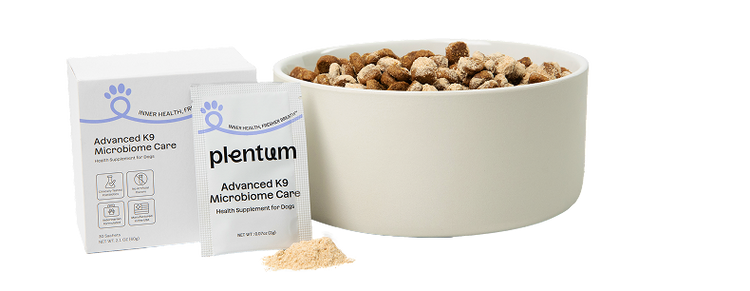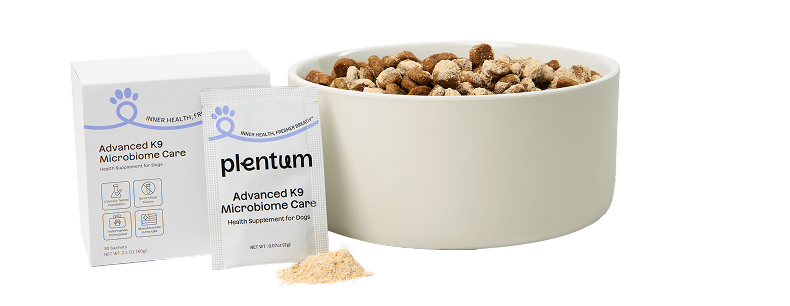
When your dog's breath carries distinct odors beyond typical "doggy breath," it's often signaling specific health concerns that require immediate attention. Understanding what different breath odors mean can help you provide the right care before minor issues become serious health problems.
The Odor Map: What Each Breath Smell Reveals

Fishy Breath Odors
Fishy breath in dogs typically stems from two primary sources. The most common culprit is anal gland issues. Dogs naturally produce fishy-smelling secretions in small sacs near their rectum. When these glands become impacted or infected, dogs lick the area excessively to relieve discomfort, transferring the odor to their mouth.
Signs of anal gland problems include scooting across the floor, excessive rear-end licking, and a strong fishy smell even when your dog hasn't eaten fish. Dental disease also produces fishy odors when bacteria break down food particles and create foul-smelling compounds.
Diet plays a significant role too. Fish-based foods or supplements containing fish oils can naturally create fishy breath. However, if your dog isn't consuming fish products and the odor persists, underlying health issues require investigation.
Ammonia-Like Breath
Ammonia or urine-scented breath is a serious red flag indicating potential kidney disease. When kidneys fail to properly filter waste products, urea builds up in the bloodstream. This excess urea reacts with saliva to form ammonia, which your dog exhales.
Additional kidney disease symptoms include increased thirst and urination, decreased appetite, weight loss, vomiting, and lethargy. This condition requires immediate veterinary attention as it can rapidly progress to life-threatening stages.
Metallic Breath Odors
Metallic or iron-like breath often indicates bleeding in the mouth from dental disease, oral injuries, or gum infections. Blood contains iron, creating that distinct metallic smell. More seriously, metallic breath can signal liver disease or kidney failure, especially when accompanied by bleeding disorders or stomach ulcers.
Signs requiring emergency veterinary care include visible blood in saliva, pale gums, weakness, and yellowing of eyes or gums (jaundice).
Fecal Odors
Breath resembling feces may indicate your dog recently consumed waste (coprophagia) or suggest serious digestive issues. In some cases, it can signal severe kidney or liver dysfunction when toxins accumulate in the bloodstream.
When to See Your Veterinarian

Immediate veterinary attention is crucial when breath odors are accompanied by:
- Vomiting, diarrhea, or changes in appetite
- Excessive thirst and urination
- Lethargy or behavioral changes
- Visible mouth sores, swelling, or bleeding
- Yellowing of eyes, gums, or skin
Schedule a routine appointment for persistent bad breath that doesn't improve with dental care, sudden changes in breath odor, or when breath smells consistently foul despite good oral hygiene.
Microbiome-First Fixes
Understanding the Oral-Gut Connection

Recent research reveals that oral and gut microbiomes are interconnected systems affecting your dog's breath. An imbalanced gut microbiome can produce volatile compounds that are absorbed into the bloodstream and exhaled, creating bad breath. Similarly, harmful oral bacteria can migrate to the gut, disrupting digestive health.
Advanced Microbiome Support

Plentum's Advanced K9 Microbiome Care targets both oral and digestive health through scientifically formulated probiotics that restore bacterial balance. This comprehensive approach addresses bad breath at its root cause by supporting beneficial bacteria populations in both the mouth and gut.
Research shows specific probiotic strains like Lactobacillus acidophilus can significantly reduce harmful oral bacteria such as Porphyromonas gingivalis, a key contributor to periodontal disease and persistent bad breath. These beneficial bacteria compete with pathogenic organisms, reducing plaque formation and creating a healthier oral environment.
Natural Breath Freshening Solutions
Incorporate crunchy fruits and vegetables like carrots, apples, and celery that act as natural toothbrushes, mechanically removing plaque and bacteria. Parsley contains chlorophyll, a natural breath freshener, while small amounts of fresh mint can neutralize odors.
Coconut oil offers antimicrobial properties that reduce harmful mouth bacteria when added to your dog's food in small amounts. Start with a teaspoon for small dogs and gradually increase based on tolerance.
Long-Term Prevention Strategies
Daily Oral Care
Regular tooth brushing remains the gold standard for preventing dental disease and associated breath problems. Use veterinary-approved toothpaste and establish a consistent routine. For dogs resistant to brushing, dental chews and water additives can provide supplementary benefits.
Diet and Nutrition Optimization
High-quality diets with minimal processing support both oral and gut health. Avoid foods high in sugar and processed ingredients that feed harmful bacteria. Dry kibble typically provides better mechanical cleaning action than wet food, though both can be part of a balanced approach.
Adequate hydration helps flush bacteria and food particles from the mouth while supporting kidney and liver function. Ensure fresh water is always available.
Professional Preventive Care
Annual veterinary dental examinations allow early detection of problems before they cause persistent bad breath or pain. Professional cleanings remove tartar buildup that home care cannot address.
Regular health screenings can identify systemic conditions like kidney or liver disease before they progress to stages causing severe breath odors.
By understanding what different breath odors mean and implementing comprehensive microbiome support alongside traditional dental care, you can maintain your dog's oral health and catch potential health issues early. Remember that persistent or unusual breath odors warrant professional veterinary evaluation to ensure your dog's optimal health and wellbeing.
Reference:
- Yale Vet. (2025). Why Does My Dog's Breath Smell Like Fish? Retrieved from https://yalesvillevet.com/blog/dog-breath-smells-like-fish/
- West Loop Veterinary Care. (2025). Signs of Kidney Failure in Dogs. Retrieved from https://westloopvet.com/blog/signs-of-kidney-failure-in-dogs/
-
PetMD. (2023). Why Do My Dogs Smell Like Fish? Retrieved from https://www.petmd.com/dog/general-health/why-do-my-dogs-smell-like-fish
- PMC. (2022). Oral microbiota populations of adult dogs consuming wet and dry commercial diets. Retrieved from https://pmc.ncbi.nlm.nih.gov/articles/PMC9387596/





